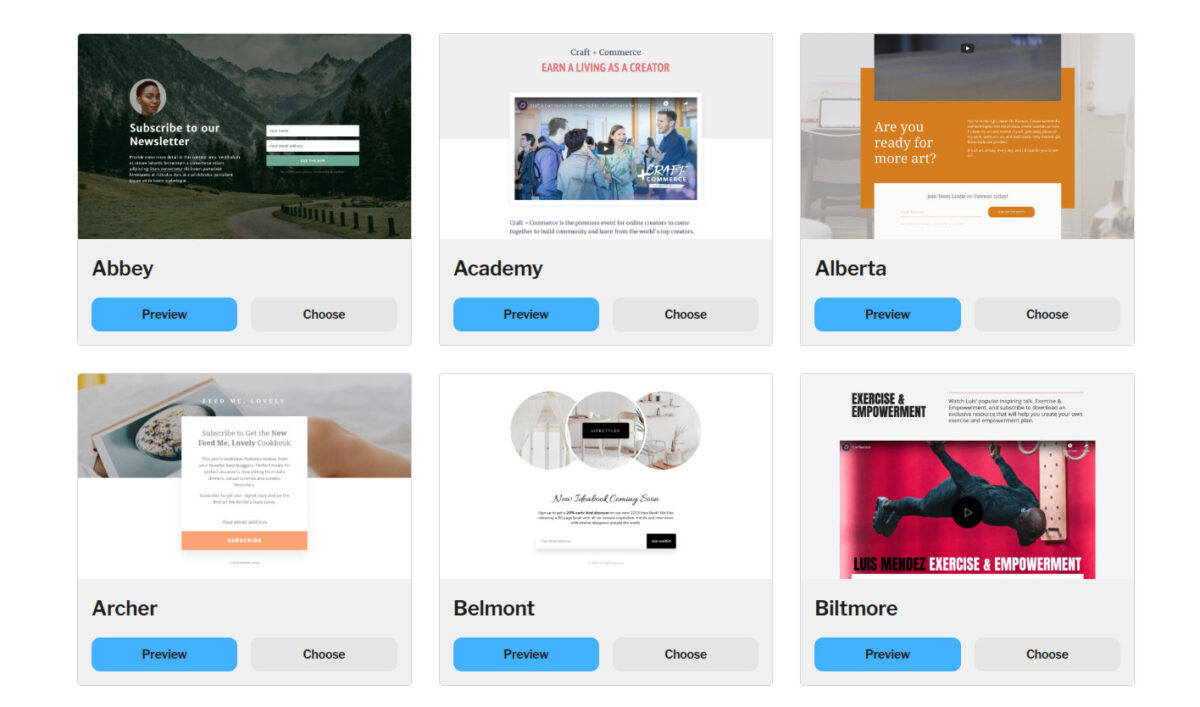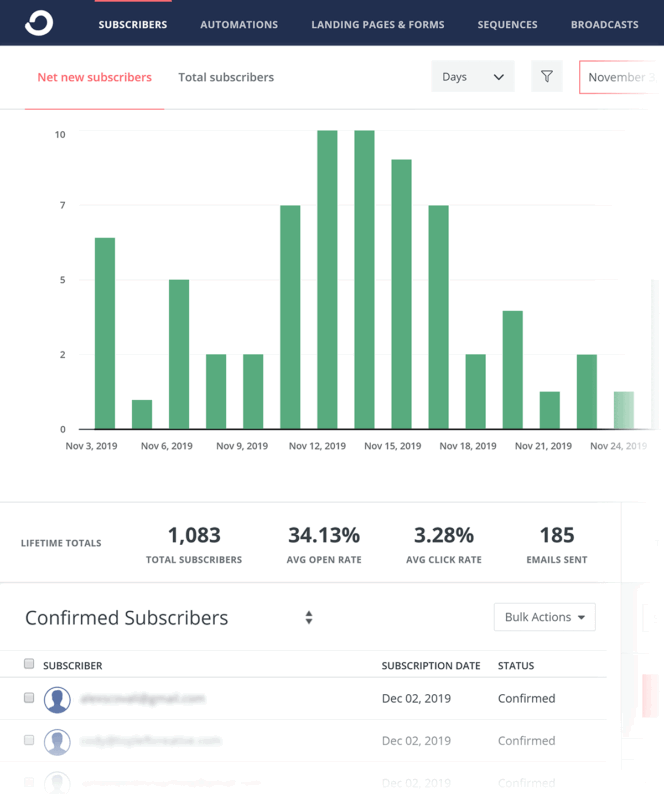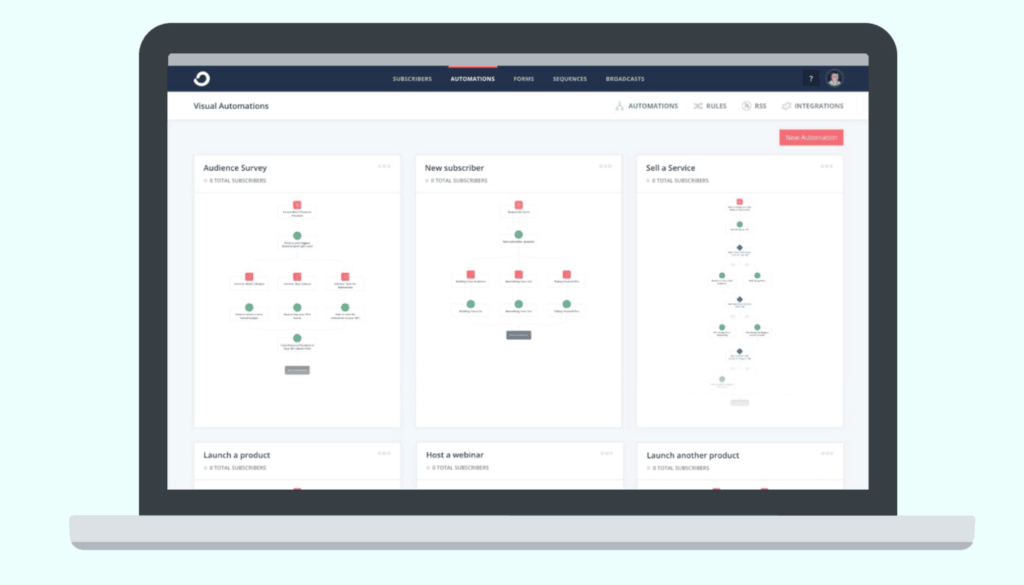The Newsletter Platform Used By Top Creators
Most newsletter and email marketing platforms are designed for SAAS and e-commerce. ConvertKit (now called Kit) is the only platform purpose built for creators and influencers…
- All-in-one platform that covers hosting, updates, and deliverability, so you never stress about tech or email servers.
- Easy-to-use editor plus 200+ creator-ready templates that make your newsletter and brand look pro from day one.
- Monetize your audience directly with built-in tools for paid subscriptions, digital products, and memberships.
- Comes with email, landing pages, and commerce as standard.
- Cheap to start, and scaling with more subscribers costs less than with MailChimp and other mailing list platforms.

Written by
Why ConvertKit is the No-BS choice for anyone serious about making a living online
Scroll through Instagram long enough and you’ll find a hundred “growth hacks” for creators.
Most are noise.
The creators who’ve actually gone full-time? They’re building audiences they own, using email, and most of them are doing it with ConvertKit.
This isn’t your corporate email software repackaged with a shiny logo.
Kit was built specifically for creators (YouTubers, podcasters, coaches, writers, and influencers) that want to stop renting attention from algorithms and start owning it.
Designed Like It Gets What You Do

And here’s the kicker: the free plan lets you email up to 10,000 subscribers without paying a dime.
Most platforms charge long before that.
Kit gives you space to grow before asking for your credit card.
Emails Designed For Humans

Behind the scenes, you’ve got serious muscle:
- Visual automations that run welcome series, launches, and onboarding without lifting a finger.
- Segmentation and tagging that let you send hyper-relevant emails instead of one-size-fits-all blasts.
Monetize on Easy Mode
And when you’re ready to collaborate?
Kit’s Creator Network and Sponsor Network connect you with cross-promotions and brand partnerships, straight from your dashboard.
Plug Into Your Whole Stack

Shopify. Patreon. Teachable. WordPress. Zapier. Stripe.
Kit plays nice with the tools you already use.
Power users can even tap into the API for custom workflows, but you don’t need to be technical to make it hum.
Kit’s analytics show you what you actually need: who opened, who clicked, who bought.
You’ll know what’s working—and what isn’t—so you can adjust without guesswork.
And when you do need help? There’s an entire community of creators, plus tutorials, webinars, and responsive support.
Customer support is exceptional, and so are its user guides and resources.
Why Creators Use Kit

If you’re an influencer, educator, or side-hustler ready to grow beyond algorithms, Kit is the obvious play.
It’s simple without being basic, powerful without being bloated, and built around how creators actually work.
And it’s the platform I’ve used since 2018. I tried beehiiv and ActiveCampaign but ended up switching back due to the unnecessary complexity of both platforms.
Kit is also cost-effective so you can scale from zero to 1,000 subscribers without even paying for anything.
The free tier is very generous; here’s what’s included:
- 1 Visual Automation – Run a simple funnel or welcome flow on autopilot.
- 1 Email Sequence – Nurture subscribers or deliver a mini-course without manual sends.
- 1 User Account – Manage everything yourself, perfect for solo creators.
- Unlimited landing pages to capture subscribers anywhere
- Unlimited opt-in forms for lead magnets and list growth
- Unlimited email broadcasts to stay connected with your audience
- Audience tagging & segmentation to send the right message to the right people
- Built-in checkout to sell digital products directly
- Run paid newsletters & subscriptions to monetize your content
- Newsletter feed & website to showcase past issues and attract new readers
- API access for custom workflows and advanced integrations
- Free creator recommendations (required) to grow through cross-promotion
- Responsive email support whenever you need help
On most other platforms you’d have to pay $50 to $60 a month for these kinds of features.
And once you get to 10,000 and more, its built in e-commerce functionality and paid-memberships means you’ll probably be doing a solid five figures in revenue by that point.